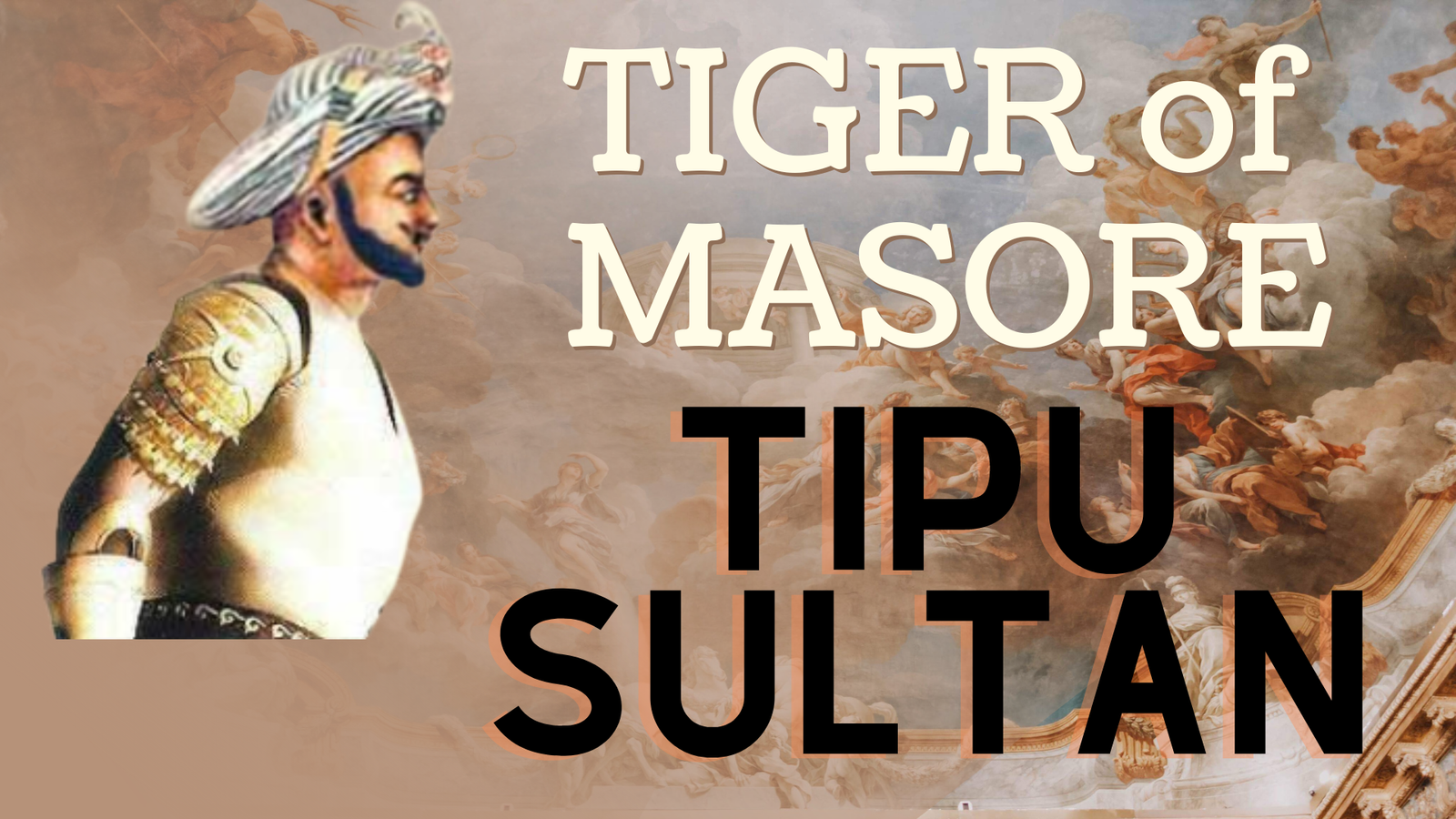TIPU SUILTAN: TIGER OF MYSORE
If you’re interested in learning about Indian history, then you should definitely learn more about Tipu Sultan. Tipu Sultan was an Indian ruler who lived in the 18th century. He is best known for his military campaigns against the British East India Company.
EARLY LIFE
Tipu Sultan was born in 1750, in the city of Bangalore. His father, Hyder Ali, was a general in the Mysore army. Hyder All, had risen to power and Tipu succeeded him as the ruler of Mysore upon his father’s death in 1782. He won important victories against the British in the Second Anglo Mysore War. He was an incredibly important figure in Indian history, and he played a major role in the struggle against British colonialism. In this blog post, we will discuss the life and accomplishments of Tipu Sultan. We will also explore why he is such an important figure in Indian history.
MILITARY ADVANCEMENT
He was a pioneer of rocket artillery. He introduced a number of administrative innovations during his rule, including a new coinage system and calendar, and a new land revenue system, which Initiated the growth of the Mysore silk industry. He expanded the iron-cased Mysorean rockets. He deployed the rockets against advances of British forces and their allies during the Anglo-Mysore Wars, including the Battle of Pollitur and Siege of Srirangapatna.
AS A WARRIOR
Tipu Sultan is best known for his military campaigns against the British East India Company. He was a skilled general, and he was able to defeat the British in several battles. Tipu Sultan was instructed in military tactics by French officers in the employment of his father. At age 15, he accompanied his father against the British in the First Mysore War in 1766. He commanded a corps of cavalry in the invasion of Carnatic in 1767 at age 16. He also distinguished himself in the First Anglo-Maratha War of 1775–1779.
RELIGIOUS HARMONY
On a personal level, Tipu was a devout Muslim, saying his prayers daily and paying special attention to mosques in the area. Regular endowments were made during this period to about 156 Hindu temples, including the famed Ranganatha swami Temple at Srirangapatna. Many sources mention the appointment of Hindu officers in Tipu’s administration and his land grants and endowments to Hindu temples. Some authors argue that controversial stories of Tipu Sultan’s religious persecution of Hindus and Christians are largely derived from the work of early British authors, who were very much against the sultan.
ECONOMIC DEVELOPMENT
The peak of Mysore’s economic power was under Tipu Sultan in the late 18th century. Along with his father Hyder Ali, he embarked on an ambitious program of economic development, aiming to increase the wealth and revenue of Mysore. Under his reign, Mysore overtook Bengal Subah as India’s dominant economic power, with highly productive agriculture and textile manufacturing. Mysore’s average income was five times higher than subsistence level at the time.
TIGER OF MASORE
Tipu Sultan was hunting in the forest with a French friend. They came face to face with a tiger there. The tiger first pounced on the French soldier and killed him. Tipu’s gun did not work, and his dagger fell on the ground as the tiger jumped on him. He reached for the dagger, picked it up, and killed the tiger with it. That earned him the name “TIPU SUILTAN: TIGER OF MYSORE”.
LAST WAR
There were more than 60,000 soldiers of the British East India Company, approximately 4,000 Europeans and the rest Indians; while Tipu Sultan’s forces numbered only 30,000. Tipu Sultan’s ministers mainly Mir Sadiq, betrayed Tipu Sultan during the Siege of Srirangapatana. There were more than 60,000 soldiers of the British East India Company, approximately 4,000 Europeans and the rest Indians; while Tipu Sultan’s forces numbered only 30,000. Tipu Sultan’s ministers mainly Mir Sadiq, he betrayed Tipu Sultan during the Siege of Srirangapatana, paving the way for a British victory. During the siege, although the invading English troops were starving, Mir Sadiq withdrew his troops, allowing the British to commence their attack on the fort. He betrayed Tipu, killing Tipu loyalist Ghazi Khan and later arranged to have Tipu trapped behind locked doors. The death of Tipu Sultan leads British General Harris to exclaim “Now Subcontinent is Ours”.
Despite his death, Tipu Sultan is still remembered as a hero in India. He is celebrated for his military successes and his resistance to British colonialism. He is also respected for his religious tolerance; he was one of the few Muslim rulers who allowed Hindus to practice their religion freely.
